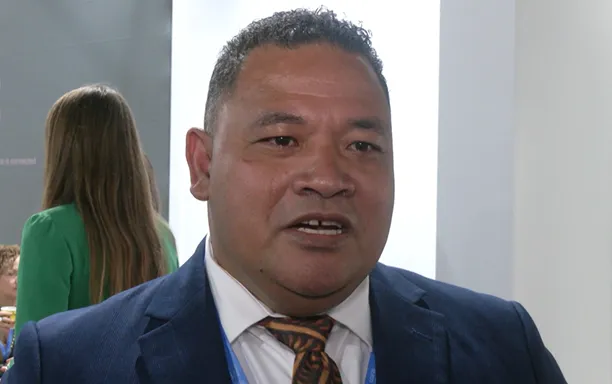As the world grapples with the challenges posed by climate change, the tiny Pacific island nation of Tuvalu has made a surprising decision: it’s choosing to stay put. Despite rising sea levels threatening its very existence, the government is discouraging its people from migrating to more developed countries in search of safety and stability.
In an exclusive interview with FBC News in Baku, Azerbaijan, Climate Change and Environment Minister Dr Maina Talia made it clear that Tuvalu’s attachment to its land and culture is unshakeable. According to Dr Talia, the government’s stance on climate mobility is to discourage its people from moving across the globe.
Understanding The Main Concept
Tuvalu’s decision to remain in place may seem counterintuitive to many, especially given the dire warnings of scientists and experts about the devastating impact of climate change on small island nations like Tuvalu. However, for the Tuvaluan government, migration is not a viable solution. In fact, it’s seen as a threat to their way of life.
Here are some key reasons why:
• Tuvalu’s unique cultural heritage: For the Tuvaluan people, their attachment to the land and sea is deeply spiritual and culturally significant. They believe that relocating would be a betrayal of their ancestors’ legacy.
• Economic dependence on fishing: The majority of Tuvalu’s population relies on fishing for their livelihood. This means that leaving their homes would not only disrupt their economy but also threaten their very survival.
The Western perspective vs. the Pacific Islander approach
Dr Talia emphasized that the Western approach to climate mobility, where people are encouraged to relocate to more developed countries, is seen as a simplistic solution by Tuvaluans. They understand that this approach ignores the complexities of their unique cultural context and the interconnectedness of their lives with the land and sea.
When they talk about relocation and climate mobility, for them it’s a climate solution – we just need to get up and go. But for us in the Pacific, it’s difficult.
Our life is totally attached to the land and the sea. So we cannot just get up and go or move because it’s to do with spirituality, it’s to do with our cultural heritage, it’s to do with our cultural values.
How This Works In Practice
So what does this mean for Tuvalu in terms of its response to climate change? Here are a few key strategies the government is implementing:
• Investing in climate resilience: Tuvalu is investing heavily in building sea walls, improving drainage systems, and promoting sustainable agriculture practices to mitigate the effects of rising sea levels.
• Education and awareness campaigns: The government is launching public awareness campaigns to educate its people about the risks posed by climate change and the importance of taking action to reduce their carbon footprint.
• Community-led initiatives: Tuvalu is supporting community-led initiatives that focus on promoting sustainable livelihoods, such as ecotourism and renewable energy.
Why This Matters For Business
While Tuvalu’s decision to remain in place may seem isolated from the global business world, it has significant implications for companies operating in the Pacific region. Here are a few reasons why:
• Climate change is a global challenge: Climate change is not just a Pacific problem; it’s a global issue that requires a coordinated response.
• Small island nations need support: Tuvalu and other small island nations require support and funding to adapt to climate change, rather than being expected to bear the burden alone.
Conclusion
Tuvalu’s unwavering resolve to stay put in the face of climate change is a powerful reminder of the importance of considering the cultural, economic, and environmental contexts of small island nations. As businesses and governments around the world grapple with the challenges posed by climate change, we would do well to learn from Tuvalu’s approach.
Tuvalu’s decision may seem radical to some, but it reflects a deep understanding of the interconnectedness of their lives with the land, sea, and culture. By supporting community-led initiatives, investing in climate resilience, and promoting sustainable practices, businesses can play a critical role in helping Tuvalu – and other Pacific island nations – thrive in the face of climate change.
Ultimately, this is not just about Tuvalu; it’s about creating a more equitable and sustainable world for all.

0 Comments